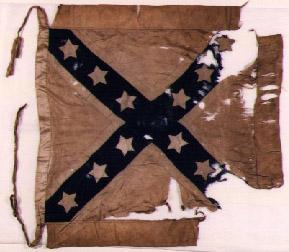
At the What Sister Never Knew and Father Never Told You site, blogger Consolamini minces no words as he compares the Confederate battle flag to the traditional Latin Mass, as it has become a shibboleth and organizing symbol of Catholics opposed to Vatican II at this point in history:
But much like those for whom the meaning of the Stars and Bars has come to justify theories of white supremacy, the use of the Tridentine Mass has become something quite evil for most of its adherents. Even since the Lefebvre Schism the usus antiquior, as it is sometimes known, has been manipulated to symbolize a Catholicism that rejects the Second Vatican Council and its teaching. Not only the Lefebvrites, but the vast majority of those who attend the Traditional Latin Mass, even those authorized by the local bishops, practice a Catholicism that is unaffected by the Council. Sermons at Traditional Latin Masses usually either avoid Conciliar teaching or openly criticize it. Most Traditional Latin Mass groups use the Baltimore Catechism with its pre-conciliar teachings on Protestants, Jews, and other religions to catechize their children. The Baltimore Catechism also does not present current Church teaching on the Sacraments of Baptism, Reconciliation, and Anointing of the Sick as developed at the Council. As a consequence—or perhaps an underlying cause for the survival of TLM communities—Anti-Semitism runs high among many who participate in the Tridentine Mass. The teachings of Dignitatis Humanae are often contradicted both in pulpit and religious education. The Social Teachings of the Church since Mater et Magistra are never mentioned and certainly not accepted. Many (I insist on many, but granted, not all) of those who faithfully attend the TLM espouse a political agenda at odds with the magisterium regarding the Death Penalty, distributive justice, access to firearms, human rights and other current issues. Pope Francis is not popular among many advocates of the TLM and in fact is often spoken of very contemptuously, in great part because of his shift from monarchial model (which is the underlying political theory of the Tridentine Liturgy) to the servant model. While from an aesthetic point of view, the pre-conciliar liturgy is a legitimate option for worship on the principle of de gustibus non est disputandum (for advocates of the Novus Ordo who have forgotten their Latin: “matters of tastes are not to be argued”), the Church, for its own good, needs to make sure that the difference of ritual does not signify a difference of belief. Like the Confederate Battle Flag, the TLM is a powerful symbol that shapes ideologies, and ideologies that often differ from our Catholic faith.
These are fighting words, and I imagine they're meant to be fighting words. Among the centrist Catholic enablers of the hard right, who have much influence in the "liberal" Catholic media and who never fail to find ways to legitimate the notions of the far right while they work hot and heavy to exclude those to the left from "the" Catholic conversation, they'll be dismissed out of hand as outré and provocative, as not measured and thoughtful and "objective."
I'm inclined to think Consolamini is right on target with this provocative analysis, however. And maybe in a day or so, I'll write something here about my own response to the removal of the Stars and Bars from public buildings, as the great-grandson of a Confederate soldier, and of three other great-grandfathers all of whom had brothers in the Confederate Army.
Hint: I could not be happier to see that racist symbol pulled down anywhere it's being displayed.
(Thanks to Jim McCrea for sending me the link to the posting excerpted above.)
The Confederate flag used by the 57th Alabama Infantry is from the Alabama Civil War Period Flag Collection at the website of the Alabama state archives.

